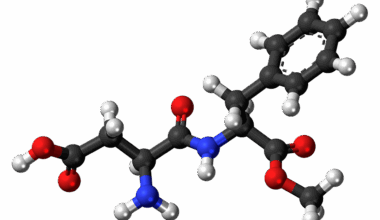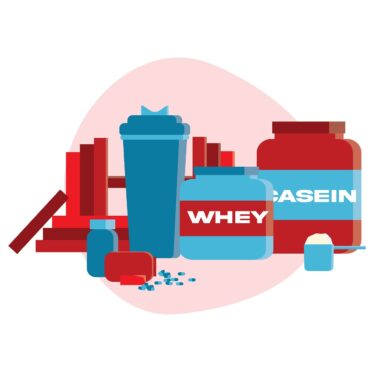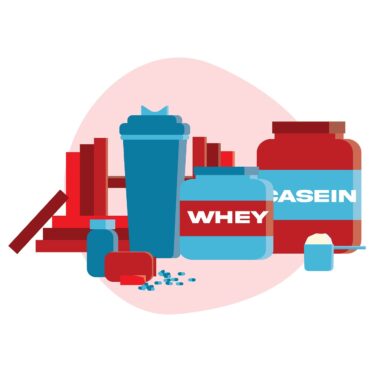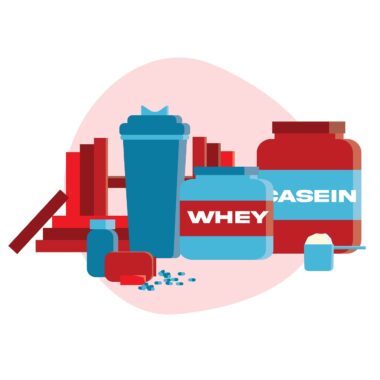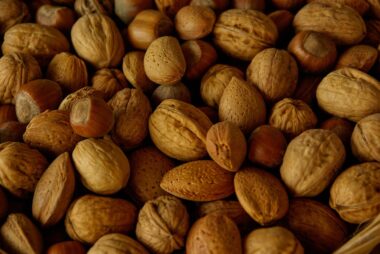Can Protein Consumption After Workouts Help with Weight Loss?
Understanding the role of protein intake after workouts can greatly influence your weight loss journey. During intense exercise, your muscles undergo stress, which leads to microtears. These tears need repair, and that is where protein comes in. Protein helps to rebuild and strengthen the muscle fibers. Consuming protein post-workout promotes muscle recovery, enhancing your performance in subsequent training sessions. Additionally, when you accumulate lean muscle mass, your body burns more calories even at rest due to the increased basal metabolic rate. This metabolic boost is highly beneficial for weight loss. Many people underestimate the importance of protein as a recovery nutrient. Implementing sufficient protein intake, in conjunction with a well-balanced diet and exercise regimen, has proven to be an effective strategy for managing body weight effectively. It is suggested that you consume protein shortly after your workout to reap the full benefits. Sources include protein powders, lean meats, eggs, and legumes. Each of these contributes essential amino acids that your body requires to facilitate efficient muscle recovery and help maintain overall metabolic health.
There are various advantages to focusing on protein intake after workouts. One key benefit is the reduction of muscle soreness, known technically as delayed onset muscle soreness (DOMS). Studies have shown that consuming whey or casein protein can significantly mitigate these effects, allowing you to recover faster for subsequent workouts. Moreover, having a protein-rich meal reduces hunger pangs, thereby controlling cravings and overall daily calorie intake. This is essential in supporting a losing weight strategy. Research indicates that post-workout nutrition can influence body composition positively. The goal should be to maintain muscle mass while losing fat, and protein plays a crucial role in achieving that equilibrium. Furthermore, incorporating protein into your post-workout routine keeps you satisfied longer, preventing unnecessary snacking on high-calorie foods. Your choice of protein source might affect the outcomes too. High-quality proteins, which are easily absorbed, generally lead to better recovery rates. The timing, adequacy, and source of protein intensely impact your progress toward weight loss goals. By prioritizing protein, you can maximize your efforts and enhance fitness results effectively.
The Importance of Timing
Timing your protein consumption after workouts is incredibly significant for optimal muscle recovery and performance. Ideally, the consumption of protein should occur within thirty minutes to two hours post-exercise. This timeframe is often referred to as the “anabolic window,” when muscles are particularly receptive to nutrients. During this period, the body is primed to absorb amino acids and use them for muscle repair and growth. Skipping this crucial window may lead to diminished recovery rates and ultimately hinder progress. Various studies suggest that meal timing directly influences muscle protein synthesis, which is essential for building lean muscle mass. Thus, having a balanced meal comprising protein along with carbohydrates can significantly enhance your recovery experience. This combination not only promotes muscle recovery but also replenishes glycogen stores that can be depleted post-exercise. Opt for high-quality protein sources like chicken, fish, or plant-based proteins coupled with complex carbohydrates. This supportive nutritional strategy can markedly facilitate faster recovery and lead to improved workout performance on successive training days.
Incorporating protein into your post-workout nutrition does not have to be complicated. You can enjoy various options that are both nutritious and easy to prepare. Protein shakes are loved by many due to their convenience and digestibility. You can mix protein powder with water, milk, or plant-based alternatives for a quick recovery drink. Alternatively, a protein-rich snack like Greek yogurt topped with fruit provides carbs and proteins to aid recovery effectively. Eggs are another versatile option that can be easily cooked or prepared as an omelet, promoting both recovery and satisfaction. For those looking for plant-based options, legumes like chickpeas offer a substantial amount of protein. A delicious smoothie combining your favorite fruits and protein powder can be prepared for a refreshing, quick meal. No matter your preference, the key is to ensure that your post-workout nutrition is balanced, comprising both protein and carbohydrates. The sooner you can incorporate these options into your diet, the more significant the impact on your recovery and weight loss efforts will be.
Evaluating Your Protein Needs
Determining the appropriate protein intake after workouts can be challenging due to individual differences. Factors such as age, gender, weight, and activity level all play a crucial role in defining your specific protein requirements. A general guideline often suggests consuming approximately 20-30 grams of protein in the post-workout phase, but this can vary considerably. For instance, larger individuals or those involved in intense training may require higher amounts to effectively support recovery and muscle building. Consider working with a nutritionist to assess your protein requirements based on your lifestyle and fitness goals. Furthermore, tracking your protein intake can help you make informed decisions about your diet. Use food tracking apps to simplify this process, ensuring you hit the appropriate figures consistently. Evaluating your progress can guide you if you’re meeting your muscle-building, weight loss, or overall health objectives. Remember, too much protein won’t necessarily yield better results; balance and adequacy over quantity can significantly impact your success. Ensure you pair your protein strategy with consistent exercise for optimal outcomes.
There are common misconceptions about protein consumption post-workout that need addressing. One myth is that more protein always leads to better results, which isn’t true. The body can only utilize a certain amount of protein at once, roughly 20-25 grams for muscle recovery. Excess protein may not provide any additional benefits and may be stored as fat if not used. Another misconception surrounds the types of protein that are best. While animal proteins are highly digestible, plant-based proteins can also effectively aid in recovery if combined properly. Understanding this is vital for those following vegetarian or vegan diets. It’s crucial to consider both quality and quantity; therefore, focus on having a varied source of protein throughout your day. Additionally, some believe they can skip protein intake altogether if their workouts are not rigorous. However, recovery nutrition is essential regardless of workout intensity. Ensuring you consume adequate protein will enhance your training results and support overall well-being. By debunking these myths, you can create a practical approach to your post-workout nutrition that aligns with your weight loss goals.
Conclusion and Final Thoughts
In conclusion, post-workout protein consumption plays a vital role in supporting weight loss while promoting muscle recovery. By understanding how protein functions in the body, you can significantly enhance your overall fitness journey. Timing and the type of protein consumed are essential factors to maximizing the benefits. Assess your unique protein requirements and ensure you’re consuming high-quality sources suitable for your lifestyle. Experimenting with different protein foods can make this practice enjoyable. Regular monitoring of your intake along with consistent exercise will ultimately guide you toward achieving weight loss and fitness targets. Remember, moderation is key. Do not fall into the trap of thinking that consuming excessive amounts will fast track your results; focus on a balanced diet. Also, incorporate resistance training alongside your workouts to build lean muscle. Overall, success in weight loss comes from establishing healthy habits that include adequate nutrition and exercise. Embrace protein as a cornerstone of your recovery routine. By prioritizing post-workout nutrition rich in protein, you are setting yourself up for not only improved performance but also sustained weight loss success.


